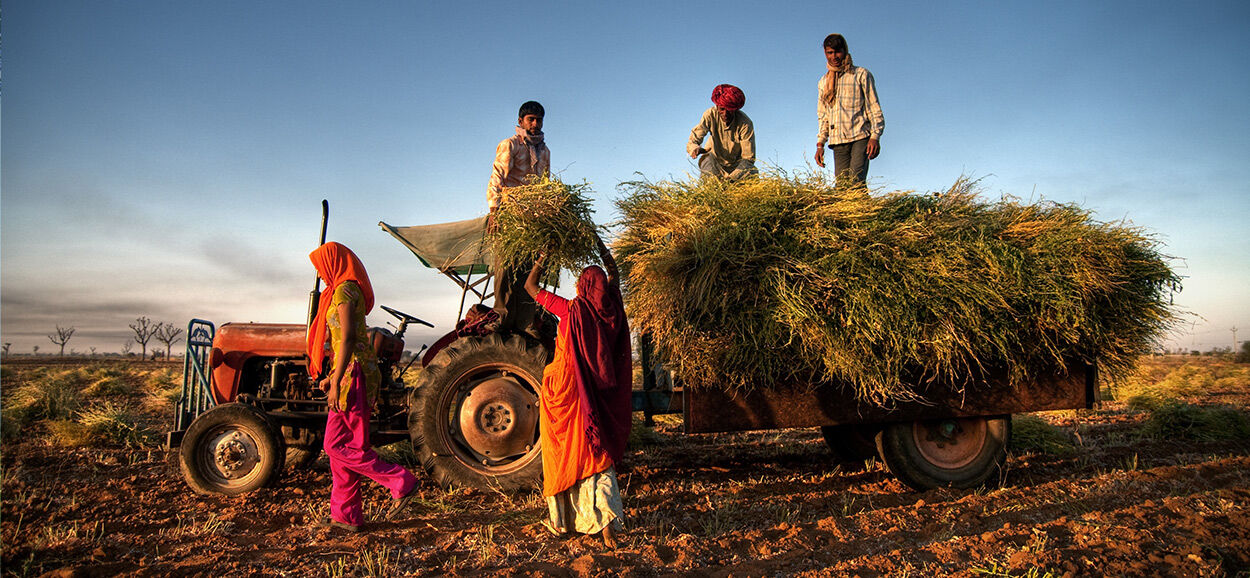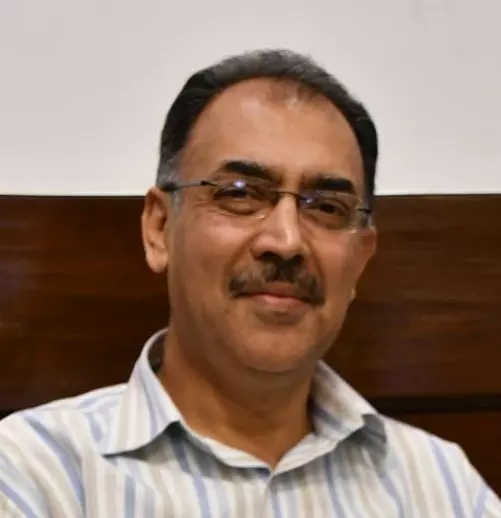A wider framework
India's agricultural extension can be broadened through incorporation of private players to achieve last-mile information dissemination

Digital Green' is an organization that in partnership with the Government of Andhra Pradesh is running the 'Tech Aided Resilient Agriculture' (TARA) project. This project aims to improve the resilience of 75,000 small and marginal farmers by enabling efficient delivery of targeted and timely agricultural advisories and improving access to markets and market information. Messages are delivered via multiple channels that include in-person video screenings, interactive voice response in addition to face-to-face extension. The project also monitors rates of adoption by targeted farmers.
The Report on the Committee of Doubling Farmers (DFI) aptly defines agricultural extension and advisory services as a system of sharing of information, knowledge and technology to enable farmers to augment their income from their enterprise on a sustainable basis.
An important arm in the country's public extension and advisory services is the National Agricultural Research System (NARS) that includes research centers/institutes of Indian Council of Agricultural Research (ICAR), State Agricultural Universities (SAU)/ Central Agricultural Universities, Water and Land Management Institutes (WALMI) and Commodity Boards (Coffee, Tea, Spices, Tobacco, Silk, and Coconut). The above is supplemented with more than 700 Krishi Vigyan Kendras (KVKs) located in Districts for ascertaining local adaptability of crop-related technologies through outreach to farmers.
Besides, the Agricultural Technology Management Agency (ATMA) is a multi-agency platform in each state. It conducts capacity building and training of farmers through individual and group contact on agricultural and allied sector activities/technologies through a huge workforce of agricultural scientists and qualified extension functionaries.
Two key strategies that form the core of extension and advisory activities include 'on farm trials' and 'frontline demonstrations' to identify location-specific technologies and their applicability in crop or animal husbandry. These strategies also subsume the last mile analysis of the information needs of farmers for an agricultural cycle ranging from pre-planting, seeding, preparing/planting, growing, harvesting/post-production/packing, storage to marketing stages. The aim is to primarily mitigate issues such as high yield gaps, low seed and varietal replacement rate, poor crop nutrient management and use of low-quality agricultural inputs. Such issues arise essentially due to lack of information, awareness and sensitization. A key element is also assessing the level of absorption of information or technology and the consequent behavioural change achieved amongst farmers in diverse agro-climatic zones of the country.
A critical issue, experts opine, is the strengthening of the ATMA-KVK last mile extension linkage through public-private partnerships. Farmer Producer Organizations (FPOs) are increasingly taking up primary processing at the farm gate after harvesting through "pack houses" that involve drying, grading, sorting, ripening, waxing, packaging and quality control assessment. This, in turn, necessitates crop-specific cold storage/ warehousing with pre-cooling facilities, cold chains, reefer vehicles and distribution hubs to avoid crop loss. There is thus a dire need to leverage extension and advisory services for such FPOs through Information & Communication Technologies (ICTs) in addition to mass media (print/electronic/social media).
In fact, 'market led' ICT extension and advisory services are also necessitated due to the successful seeding of the flagship electronic National Agriculture Market (e-NAM) programme. This is an online platform with physical spot markets at the backend that aims at reducing market intermediaries and enabling transparent price discovery. Similarly, the Government of India's ICT initiates such as dissemination of crop advisories to farmers through "Kisan Suvidha" and "m-Kisan" portals with short messaging services that aim to extend outreach across states. Outreach in villages through community radios and videos by organizations such as SEWA is already popular.
In the above backdrop, NASSCOM's 2019 study highlights the evolution of approximately 450 agriculture start-ups with an investment of USD 248 million. Key areas of operation by these Startups for farmers empowerment include expanding market linkages, real-time access through agri-stacks and uberization of inputs. Besides, organizations such as Fasal, Cropin, JivaBhumi, Agnext and Kisan Raja have created partnerships with the central and state governments in areas of artificial intelligence aided weather advisories, sustainable livelihoods, FPO digitization, farm to factory traceability, quality estimation and water saving.
Companies such as EM3, Zamindara, Crop Connect, Agrihub, Galla Foods, Mapro Farms, FarMart, Tessol, Rinac and S4S have also deployed myriad strategies to benefit small and marginal farmers in post-harvest management/output marketing. These range from mechanization leasing models, farmer training/capacity building, solar technologies, contractual agreements, digital platforms, enlisting agricultural students/rural youth and FPO mobilization. An Ernst & Young 2020 study, in fact, pitches India's agritech market at USD 24 billion by 2025 with the potential for supply chain technology and output markets at the highest.
It is the best practices of private extension and advisory services that the robust ATMA-KVK linkage has to tap for the widest dissemination to small and marginal farmers as members of FPOs. The focus will have to be particularly 'on farm' management and precision agriculture. This will also entail an intensive rehaul of the minimum ratio of the extension service provider to farming families by the state governments. There is, of course, a need to delicately balance ICT based extension and advisory services with face-to-face communication to ensure message reinforcement, be it through on-farm trials, front line demonstrations or community interactions.
The writer is an Additional Secretary in the Ministry of Agriculture and Farmers' Welfare, Government of India. Views expressed are personal



